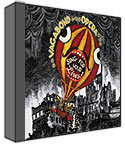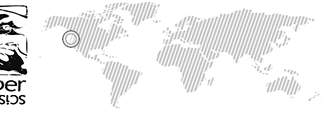Vagabond Opera: Life Is a Cabaret
Thursday, January 10, 2008
AVagabond Opera show is a chance to time-travel. Specifically, to 1920s Paris. On a riverboat. With a glass of absinthe in one hand and a long cigarette holder in the other. And -- why not? -- chatting with Josephine Baker.
The six-piece ensemble will create its neo-cabaret fantasy world on the Kennedy Center's Millennium Stage this Saturday. Eric Stern, a mustachioed 36-year-old operatic tenor and accordion player, is the Portland, Ore., group's artistic director and has a back story nearly as bohemian as the music he plays.
Stern's parents helped run an anarchist book and record shop in Philadelphia. He listened to a ton of music as a tyke, choosing records by the pictures on their covers. Gershwin's "An American in Paris" one day and the soundtrack to "Planet of the Apes" the next. He didn't know about genres then, and he still makes a conscious effort to ignore them: Vagabond Opera cites influences as diverse as klezmer, tango, jazz and Arabic and Balkan music.
A few of the songs on their two full-length albums start with the crackles and pops of an old record player. "The Transformation Into Marlene" is a standout track from the group's self-titled album. "I wish I was Marlene Dietrich," Stern laments over jaunty accordion and a swingy rhythm. "I wish that I had sex appeal."
The group can sing in 11 different languages, including French, English, Yiddish, Russian, Bulgarian and a nonsense Balkan-sounding language that Stern calls "Oshtal."
He trained as a vocalist at the Delaware Valley Opera Company until he rejected the classical music world because of what he saw as elitism. He decided that he wanted to be a writer instead and did what all of his literary heroes did: He ran away to Paris. He was 21. He stayed for a year and a half, spending many hours wandering the streets "poor, hungry and unrecognized."
Once back in the States, heartbreak drove him to the loving embrace of an accordion. He saw the instrument in a pawn shop window and played it for two hours -- the first block of time in weeks that he hadn't spent mourning his lost love.
The instrument kept him alive when he moved to Portland and played on street corners to make money. He remembers his busking time fondly, saying he "felt very powerful."
In 2002, he rounded up some other classical music misfits and formed the Vagabond Opera. The ensemble includes tenor saxophone player Robin Jackson, an ethnomusicologist who serves as Stern's "comedy sidekick" onstage.
The hardest part of being in Vagabond Opera? Describing it to other people.
"That is the albatross we all have to bear," laughs bass player Jason Flores. "It's a beautiful mess in a lot of ways. It's just a hodgepodge of anything goes, and if it works, it stays."
Philatelic Film Series
There's plenty to love about the 1963 film "Charade," starting with its stars: Audrey Hepburn and Cary Grant. This Saturday, the folks at the National Postal Museum are celebrating the romantic comedy/thriller for its philatelic elements. (Philately is the love of postage stamps.) Hepburn plays a widow whose late husband's fortune is missing, and a rare stamp collection is key to the plot.
"Charade" is screening as part of the museum's Philatelic Film Series, which honors films that prominently feature stamps or the mail service. Over the past few years, the museum has screened the Italian film "Il Postino (The Postman)," a 1999 romance starring Kate Capshaw called "The Love Letter," and the 2005 film "The Sisterhood of the Traveling Pants" (the teens stay in touch via the mail -- and a magical pair of jeans). Museum spokeswoman Allison Gallaway is also excited about the new Hilary Swank film "P.S. I Love You" because "without letters, there is no plot," she says.
Daniel Piazza, the museum's research chairman, selected "Charade" for the series and will host a discussion following the film. Piazza wrote about "Charade's" philatelic connections for a journal called Stamp Insider. (The March/April 2006 issue, in case you missed it.) Piazza notes that an experienced philatelist will see through the film's thinly disguised versions of some of the world's rarest stamps, such as the Treskilling Yellow, a "Swedish three-shilling yellow color error of 1855."
So obvious.



